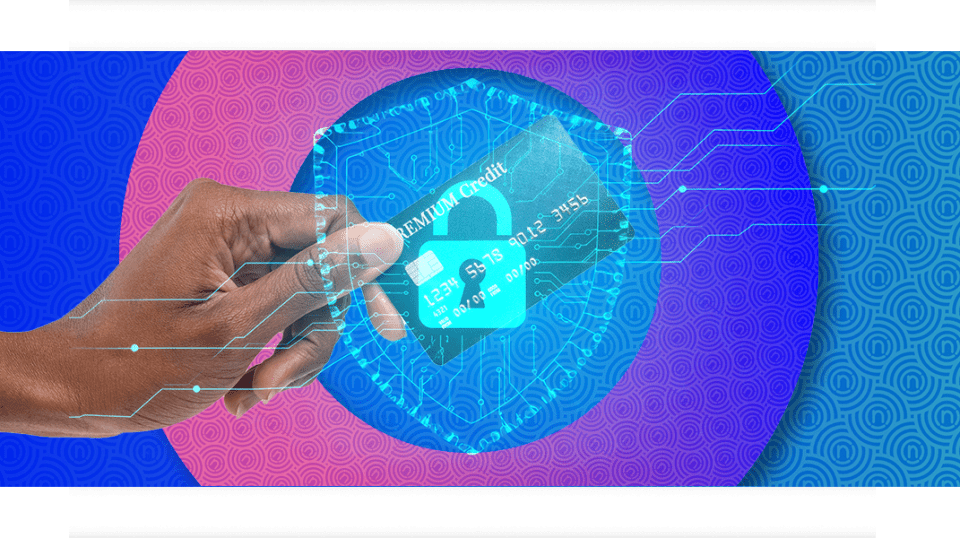
Digital payment services in South Africa: Methods, trends & more
May 16, 2024
Analysing the ISP industry and what it takes to stay competitive (2024)
July 5, 2024Mark Zuckerberg once said that “the biggest risk is not taking any risk.” As a business owner, you probably know this all too well. Daily, you face the daunting challenge of building your company to new heights. And while you play a pivotal role in creating jobs and driving the economy, you might find navigating the business landscape tricky.
Let’s be honest: businesses face different risks, and yours is not exempt. That’s where proper risk management comes in.
From high crime rates to infrastructure blackouts, South African businesses face many threats. Using risk reports as part of your overall risk management plan can help you identify and respond to such challenges.
So, are you ready to empower yourself as a business owner to defend your entity and help it thrive? It’s time to find out how risk reports can help your company traverse rocky terrain.

What are risk reports?
Risk reports are documents that identify and describe the risks faced by a business. Netcash offers the following risk reports: bank account verification, mini company report, business linked to the consumer, CIPC business, and consumer credit check. These reports also help your company make informed decisions when dealing with customers and creditors.
These possible threats can affect your business in many ways, be it through your operations, finances, and overall long-term stability. That said, you wouldn’t be faulted for thinking that risk reports are compiled for large organisations only. The thing is, even small and medium enterprises (SMEs) can benefit from using them.
With increasing economic pressure, global health crises, and cybersecurity threats, to name a few, all businesses are confronted with threats to their long-term viability.
Risks faced by South African businesses
Running a business is tough. And as exciting and promising as the South African business landscape is, you’re probably aware of the following risks faced by entrepreneurs such as yourself.
Here are some common risks your enterprise may face.
Employee fraud
Ask any business owner, and they’ll tell you that finding competent workers with integrity is quite the feat. Not only do you want people who know what they’re doing, you want them to behave well when no one’s watching. Sadly, a survey by The Global Economic Crime and Fraud found that employees were responsible for 41% of economic crimes in South Africa.
Thankfully, you needn’t worry. Netcash’s risk reports can help you avoid internal fraud. These will help you check the credit status of potential employees whose key role will be to manage money. Prime examples include financial managers and credit control staff.
Below are a few examples of employee fraud:
- Falsified timesheets: In companies where tracking billable hours is essential, some workers may falsify their hours worked by inputting earlier times than they’ve arrived and later ones when they leave the office.
- Ghost employees: This usually occurs when a member of the payroll function creates a fake employee and inputs their own banking details to receive payment.
Identify and address potential threats before they impact your business
Incorrect payments
Paying suppliers on time helps you build trust with them and ensures you have access to resources, such as water and electricity, you need to produce goods and provide services.
A common risk faced by businesses, and everyday people, to be honest, is making incorrect payments. But how do you ensure you pay the right party every time and avoid unnecessary cash outflows and potential delays?
With Netcash’s bank account verification, you minimise the risk of incorrect payments by matching bank account numbers to the relevant ID or company registration number.
- Accidentally paying the wrong account: Sometimes, you or your financial controller may make a typo when entering bank account details. By verifying bank account numbers with Netcash’s risk reports, you can avoid making this kind of error.
Read more: Verifying customer account ownership can help you ensure you’re transacting with the business or person you intend to.
Credit risk
While offering credit to your clients can increase sales, it also increases your exposure to risk, namely credit risk.
This is the risk that those you sell to on credit may be unable to pay you back and default.
- Underpayments and bad debts: The current economic climate is putting pressure on consumers, with rising interest rates and inflation leaving people with less disposable income. This, coupled with overspending, results in debtors being unable to service their debts.
Netcash’s risk reports help you minimise this threat by helping you make informed decisions with risk reporting services from CIPC and reputable credit bureaus, such as XDS, Transunion, and Compuscan, to name a few. Get information on a prospective credit customer’s payment history and more.





Why your business needs to compile risk reports
In a business environment characterised by volatility, uncertainty, complexity, and ambiguity (VUCA), risk reports can help your organisation safeguard its interests. On top of helping you navigate the business environment, risk assessment reports can help your business thrive.
Business reports to help avoid hazards and risks
Here are the types of reports Netcash offers that can help you navigate today’s business landscape. You can rely on the accuracy of the information contained therein. Netcash pulls these reports from various reputable sources like the CIPC and multiple credit bureaus, including Transunion, Experian, XDS, and Compuscan.
Bank account verification
With Netcash, you can verify the bank account of the person or business you’re transacting with. This gives you peace of mind that you’re transacting with whom you intend to.
Running Netcash’s Account Verification Service (AVS) will return the following information to you:
- Branch code
- Account number
- ID number or company registration number
- Whether or not the account exists
- If the account was opened more than 3 months ago
- And more
Bank account verification helps you reduce your risk of fraud and paying money into the wrong account.

Business linked to consumer
This report gives you the lowdown on potential relationships a consumer might have with a business. If you’d like to do your due diligence and identify if a consumer is linked to a particular entity, Netcash can assist you.
Your business can benefit from discovering if a prospective customer has any pre-existing relationships that pose a risk to you.
Consumer credit check
With Netcash’s consumer credit check report you’ll get all the information you need about your customer’s credit history.
You’ll have the following information at your fingertips:
- Payment history
- Outstanding debts or defaults
- The type of credit accounts opened
- Account terms and conditions
Armed with this knowledge helps you assess your potential customers’s ability to repay loans and reduce your risk of bad debts.
Note: Remember to get consent before you run a credit check against a potential customer. This is because consumer credit information is confidential and needs to be protected. Furthermore, the National Credit Act (NCA) prescribes that you obtain consent.
CIPC business check
Need to verify the owner of a business? Netcash’s CIPC business report can give you information about a company, including:
- Its company name and registration number
- Business activities of the company
- Company financial statements
- Registered office address of the company
- The directors and shareholders of the company
While South Africa has a relatively stable political environment, businesses are exposed to risks such as crime and corruption, as mentioned earlier. Thankfully, a CIPC business can come in handy. It can help your business assess the credibility of potential partners, suppliers, and customers, allowing you to transact with legitimate businesses that are governed well.
Mini company report
Similar to the CIPC business report, a mini company report provides you with information about a company. But it gives you different information. A mini company report gives you a quick breakdown of the business activities of a company. It also contains information on the financial performance of an entity.
This kind of information can also help you do your due diligence on a prospective supplier.

“The only way we can ensure minimum business risk, is by utilising easy, user-friendly solutions like Netcash Risk Reports. In my opinion, if you are looking for bespoke risk management solutions, there is only one name to be considered as an industry leader, Netcash!”
Ensuring business continuity
Apart from global supply chain issues, businesses face disruptions from natural disasters and protest action. These issues can threaten your business’s operations.
Reputation management
Adverse events, such as product recalls or online client complaints, can impact an organisation’s reputation. Add to this increasingly vocal clients on social media, businesses need to incorporate how to protect their reputation and build rapport online with risk reports.
Changing economic landscape
Global trade and international partnerships are the order of the day. With countries trading more goods and services than ever, there is a need for risk assessment reports to help guide businesses in understanding global dynamics. Lastly, such reports could play a major role in managing the risks associated with international trade.

Components of a risk assessment report
Knowing the importance and benefits of risk reporting is great. But what do they look like, and what do they entail? Fear not. Below, you’ll find a simple outline of what to expect in a risk assessment report.
Tip: When preparing your assessment, it’s important to consider who your audience is. If you’re preparing it for decision-making, ensure you include all information necessary for management to make informed decisions on behalf of your company.
- An executive summary: This is a brief overview of the report’s key findings. It’ll also highlight major risks faced by your business and the actions you can take to mitigate these risks.
- The methodology used: Here, the write-up focuses on the processes and methods your business will follow when performing risk assessments. This could entail how you plan to collect data, analyse risks, and the criteria used for evaluating said dangers.
- Your business’s risk profile: This part of the risk report helps quantify threats using numerical values to make understanding their ramifications much easier. Risk profiles can be based on the probability of risks taking place and how serious they are.
- The risks faced by your business: This section identifies and describes risks that can impact your organisation.
- Analysis of risks: Analysing risks entails assessing their likelihood of occurring and their potential impacts.
- An evaluation of risks: Once your organisation’s risks have been identified and analysed, they’re then ranked in order of significance. This doesn’t necessarily mean some risks are unimportant, whilst others are. But it does mean they’re ranked based on several factors. These include how severe they are, how often they occur, whether they prevent you from reaching organisational goals, and so on.
- Recommended strategies: Now, you focus on how to minimise or eliminate these issues.
- Plan of action: This section focuses on how you’ll implement the recommended strategies. You’re looking at what specific tasks to carry out, who is responsible for certain tasks, when to complete them, and the resources you’ll require.
- Monitoring and reporting: Here, the risk report focuses on monitoring your risk mitigation efforts and the progress thereof. You can also include key performance indicators (KPIs) that’ll help you with tracking.
- Communication of risk: This part of the report focuses on how you’ll communicate risk-related information to relevant stakeholders within and outside your company.
Note: Risk reports may look different from one organisation to the next. You can use the outline above while adapting it to your business’s needs.
Find out more about Risk Reports
Benefits of risk reporting
Now that you’ve got a deeper understanding of the significance of risk reports in today’s business landscape, it’s time to see how risk reporting can benefit your organisation.
- Minimise fraud: As mentioned earlier, fraud costs the South African economy billions of rands. Risk reports can help minimise your business’s exposure to this risk by only employing staff who pass background and credit checks, for example.
- Improved financial stability: Risk reports can help your organisation identify and mitigate financial risks, which can enable the survival and growth of your business.
- Developing contingency plans: These reports will help you and your business prepare for unforeseen challenges. A contingency for the threat of load shedding, for example, looks like backup generators or solar panels for your business to ensure continued operations.
- Reduce the likelihood and impact of risks: Linked to the above, when you report on risks, you’re able to anticipate and prepare for threats. By preparing beforehand, you can minimise or even eliminate the risk. In the case of load shedding, you’ll still be able to serve your clients.
- Promotes compliance with certain regulations: Laws and regulations such as the Basic Conditions of Employment Act (BCEA) and other labour laws can help your organisation remain compliant and avoid any penalties or legal disputes.
- Helps your business make informed decisions: With risk reports, you’ll have a better understanding of your environment. This allows you to make decisions that’ll take your business to the next level and not allow it to stagnate.
- Helps you identify and assess the risks faced by your business: In addition, when you can identify and assess the risks faced by your business, you’re able to make informed decisions that’ll help you reach organisational goals. A pharmacy faces different risks than a restaurant, for example. The former has to adhere to the stipulations of the Pharmacy Act, whereas the latter has to follow the requirements of the Health Act.
Final thoughts on risk reporting for businesses
It’s clear now, more than ever, that businesses face risks that can threaten their survival and growth. Whether you’re concerned about a particular economic risk or want to get ahead of regulatory changes, a risk report is essential in your threat management toolkit.
After reading this, you’ll know how these documents can give valuable risk insights. Be it in the identification, assessment, or management of threats, these reports will guide you in making better decisions for your business.
LET OUR PAYMENT ADVISOR CONTACT YOU TO ASSIST WITH YOUR PAYMENT NEEDS
Paul has over 30 years experience in banking and the payment industry, he has a passion for translating needs into effective solutions. Cultivating strategic partnerships with integrated software vendors and producing cost effective, efficient and time saving business solutions make him a valuable member of the team at Netcash.




